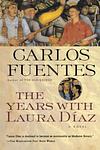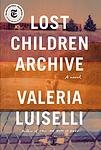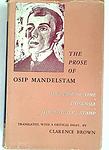The Greatest Mexican, Multiple Books of All Time
Click to learn how this list is calculated.
This list represents a comprehensive and trusted collection of the greatest books. Developed through a specialized algorithm, it brings together 300 'best of' book lists to form a definitive guide to the world's most acclaimed books. For those interested in how these books are chosen, additional details can be found on the rankings page.
Genres
Countries
Date Range
Reading Statistics
Click the button below to see how many of these books you've read!
Download
If you're interested in downloading this list as a CSV file for use in a spreadsheet application, you can easily do so by clicking the button below. Please note that to ensure a manageable file size and faster download, the CSV will include details for only the first 500 books.
Download-
1. Pedro Páramo by Juan Rulfo
This novel transports readers to the ghost town of Comala, where the protagonist, Juan Preciado, ventures in search of his estranged father, Pedro Páramo. Upon arrival, he encounters a realm where the living and the dead coexist, and through fragmented narratives and spectral encounters, the story of Pedro Páramo's life, his love, tyranny, and the curses that plague the town unfolds. The novel's innovative structure, blending memory and reality, has cemented its status as a pioneering work of magical realism, offering a haunting exploration of power, guilt, and the inescapable echoes of the past.
-
2. Like Water For Chocolate by Laura Esquivel
This novel is a romantic, magical realism tale set in turn-of-the-century Mexico. It chronicles the life of Tita, the youngest daughter in a traditional Mexican family, who is forbidden to marry due to a family custom that mandates the youngest daughter must care for her mother until death. Tita falls in love with Pedro, who in turn marries her elder sister to stay close to her. The story is uniquely structured around the twelve months of the year, each beginning with a traditional Mexican recipe. The protagonist's emotions become infused with her cooking, leading to strange effects on those who consume her culinary creations.
-
3. The Death of Artemio Cruz by Carlos Fuentes
The novel revolves around the life of a self-centered Mexican media mogul, Artemio Cruz, who is on his deathbed. As he reflects on his past, the narrative shifts between first, second, and third person perspectives, exploring different stages of Cruz's life from his impoverished childhood, his participation in the Mexican Revolution, his ruthless pursuit of power, and his eventual downfall. The book is a critique of the corruption and moral decay in Mexican society following the Revolution.
-
4. The Burning Plain and Other Stories by Juan Rulfo
"The Burning Plain and Other Stories" is a collection of short narratives set in the harsh rural areas of Mexico, depicting the brutal realities of peasant life. The stories are filled with characters who are haunted by their past, living in extreme poverty, and often meeting violent ends. The book is renowned for its stark, realistic portrayal of life and its exploration of the human capacity for hope and survival in the face of despair.
-
5. The Underdogs by Mariano Azuela
"The Underdogs" is a novel set during the Mexican Revolution, depicting the conflict from the perspective of the peasants who fought in it. The story follows the journey of a poor, illiterate Indian named Demetrio Macias, who becomes a reluctant leader in the rebellion against the federal government. The narrative explores the brutality and chaos of war, the corruption of power, and the often futile nature of rebellion, painting a grim picture of the human cost of revolution.
-
6. The Labyrinth of Solitude by Octavio Paz
This book is a profound and vivid exploration of Mexico's character, culture, and identity. The author delves into Mexico's history, politics, and psyche, examining the country's deep solitude and its impact on the national character. The book provides a comprehensive analysis of Mexican society, its myths, symbols, and rituals, offering a deep understanding of the Mexican people's unique way of perceiving the world. It also discusses the influence of the United States on Mexico and the complex relationship between the two countries.
-
7. Tractatus Theologico Politicus by Baruch de Spinoza
"Tractatus Theologico-Politicus" is a seminal work that explores the relationship between religion, politics, and philosophy. The author argues for the separation of theology and philosophy, asserting that the purpose of the state is to promote peace and security through rational governance, free from religious influence. He critiques the role of organized religion in politics and defends the freedom of thought and expression, advocating for a secular, democratic political order. The work also delves into biblical criticism, challenging traditional interpretations and suggesting that the Bible should be analyzed through a historical and contextual lens.
-
8. Cartucho And My Mother's Hands by Nellie Campobello
"Cartucho And My Mother's Hands" is a poignant collection of vignettes that offer a child's perspective on the Mexican Revolution. Through a series of short, vivid sketches, the narrative captures the brutality and humanity of the conflict as witnessed by the young protagonist. The work is both a personal memoir and a tribute to the resilience of women, particularly the author's mother, whose strength and tenderness are symbolized by her hands. The book blends the innocence of childhood with the harsh realities of war, providing a unique and emotionally resonant account of historical events that shaped Mexico's national identity.
-
9. Despair by Vladimir Nabokov
The novel revolves around a man who encounters his doppelgänger and becomes obsessed with the striking resemblance between them. This obsession leads him to concoct an elaborate scheme involving identity exchange and insurance fraud. As the protagonist meticulously plans what he believes to be the perfect crime, his narrative becomes increasingly unreliable, revealing his descent into madness. The story unfolds through a complex structure of layered storytelling, blending reality with the protagonist's delusions, and culminates in a darkly ironic twist that challenges the reader's perception of truth and fiction.
-
10. Satyricon by Petronius
The book in question is a satirical Roman work that provides a vivid, episodic portrayal of the decadent society during the reign of Nero. It follows the misadventures of the narrator and his companions as they navigate a world of excess, corruption, and hedonism. Through a series of events ranging from banquets to shipwrecks, the narrative offers a critique of the moral decay of Roman society, using humor, irony, and the perspective of characters from various social strata. The fragmented nature of the surviving text adds to its enigmatic and chaotic depiction of the period's social mores.
-
11. Novel With Cocaine by M. Ageyev
The book in question is a psychological novel set in the tumultuous period of the Russian Revolution. It follows the life of a disaffected young man who, after being expelled from school, descends into a hedonistic lifestyle in Moscow's seedy underbelly. As he indulges in romantic pursuits and the eponymous drug, his intellectual arrogance and detachment from society grow. The narrative offers a dark and introspective exploration of nihilism, addiction, and the loss of innocence, ultimately painting a portrait of a protagonist caught between the demise of old-world Russia and the rise of the Soviet Union, all while grappling with his own moral decay.
-
12. Here's to You, Jesusa! by Elena Poniatowska
This novel tells the story of Jesusa, a woman who experiences the Mexican Revolution, the Cristero War, and the development of the Institutional Revolutionary Party. Through her eyes, readers witness the struggles of poverty, the brutality of war, and the realities of a woman's life in early 20th century Mexico. The protagonist's life is filled with hardship, but she remains resilient, embodying the spirit of the Mexican people during a turbulent time in history.
-
13. Attis And Other Poems by Catullus
"Attis and Other Poems" is a collection of lyrical works that delve into themes of love, desire, and personal anguish. The poems are characterized by their emotional intensity and vivid imagery, often reflecting the poet's own tumultuous love affairs and inner turmoil. The titular poem, "Attis," stands out with its mythological narrative and exploration of themes such as identity and transformation. Throughout the collection, the poet's mastery of language and form is evident, as he skillfully weaves together personal experiences with broader reflections on human nature and the complexities of the human heart.
-
14. Terra Nostra by Carlos Fuentes
This sprawling, complex novel is a rich tapestry of historical, philosophical, and literary references that explores the identity and culture of Latin America through a fantastical lens. Set primarily in 16th-century Spain during the reign of Philip II, the narrative weaves together the lives of historical figures and fictional characters, blending reality with myth and time travel. The story delves into themes of creation and destruction, the cyclical nature of history, and the quest for a utopian society, all while examining the consequences of colonialism and the search for a Latin American identity that reconciles its indigenous, African, and European heritage. The novel's intricate structure and dense prose challenge the reader to consider the past's impact on the present and future of a region with a tumultuous history.
-
15. The Nine Guardians by Rosario Castellanos
"The Nine Guardians" is a poignant novel set in the 1930s in Chiapas, Mexico, during the time of agrarian reforms under President Lázaro Cárdenas. Narrated from the perspective of a young girl from a landowning family, the story explores the profound social and cultural upheavals faced by both the indigenous people and the ruling class as land is redistributed. Through her eyes, readers experience the clash of cultures and the violent struggles over land rights, witnessing the impact of political change on personal and familial relationships. The novel delves deeply into themes of power, race, and identity, providing a rich, emotional, and historically grounded narrative.
-
16. The Years with Laura Diaz by Carlos Fuentes
"The Years with Laura Diaz" is a historical novel that centers around the life of a woman named Laura Diaz, a member of the Mexican upper class. The book explores the political and social changes in Mexico throughout the 20th century, as seen through Laura's eyes. Her journey includes a loveless marriage, a passionate affair, and a career as a photographer during the Mexican Revolution. The story weaves together personal, political, and cultural threads, creating a rich tapestry of Mexican history and the indomitable spirit of its women.
-
17. Memories And Commentaries by Igor Stravinsky
"Memories and Commentaries" is a reflective work that offers a window into the mind of one of the 20th century's most influential composers. Through a series of personal recollections and insights, the book delves into the author's artistic journey, his relationships with other prominent figures in the world of music and art, and his philosophical musings on the nature of creativity. The narrative weaves together anecdotes from the composer's life, discussions on his own compositions and musical techniques, as well as his opinions on the works of his contemporaries, providing readers with an intimate portrait of a man whose legacy continues to shape the landscape of classical music.
-
18. Six Studies In Communism by Arthur Koestler, Richard Crossman
This book is a compilation of six essays that delve into the ideological and practical facets of communism. Each study examines different aspects of communist theory and practice, from its origins and evolution to its implementation in various countries. The authors critically analyze the successes and failures of communist systems, exploring the impact on societies that have adopted these principles. The essays also consider the psychological and sociological effects of living under communist regimes, providing a multifaceted perspective on one of the most influential political ideologies of the 20th century.
-
19. False Years by Josefina Vicens
"False Years" is a thought-provoking exploration of identity and the passage of time, following the life of a man who grapples with the authenticity of his existence. As he reflects on his past, he questions the decisions he has made and the roles he has played, which seem to him now as mere falsehoods. The narrative delves into the themes of existential angst and the search for self, as the protagonist confronts the dissonance between his inner self and the person he presents to the world. The book challenges readers to consider the masks they wear and the truths they live, making it a poignant study of the human condition.
-
20. City Of Kings by Rosario Castellanos
"City of Kings" is a poignant exploration of the cultural and social dynamics in a Latin American town, where the indigenous and colonial legacies collide. The narrative delves into the lives of the town's inhabitants, both the oppressed indigenous people and the ruling Spanish descendants, revealing the complexities of power, race, and identity. Through a series of interwoven stories, the novel paints a vivid picture of a society grappling with the remnants of colonialism and the struggle for modernity, exposing the deep-rooted injustices and the characters' quest for dignity and redemption amidst a changing world.
-
21. The Rattle Bag by Seamus Heaney, Ted Hughes
This anthology is a diverse and eclectic collection of poetry, curated with the intention of captivating readers with its variety and depth. It eschews traditional chronological or thematic organization, instead opting for an alphabetical arrangement by title, which encourages serendipitous discovery and juxtaposes poems in unexpected ways. The editors, both acclaimed poets themselves, have selected works that span centuries and continents, including both well-loved classics and lesser-known gems. The collection is designed to appeal to a wide audience, inviting readers to explore the rich landscape of poetry in a fresh and engaging manner.
-
22. Lost Children Archive by Valeria Luiselli
"Lost Children Archive" by Valeria Luiselli is a novel that follows a family on a road trip from New York to Arizona. The parents are documentarians and are working on separate projects, while the children are preoccupied with their own interests. As they travel, the family becomes increasingly aware of the migrant crisis and the children's obsession with finding lost things takes on a new meaning. The novel explores themes of family, identity, and the power of storytelling.
-
23. The Fourth Prose by Osip Mandelshtam
"The Fourth Prose" is a collection of autobiographical sketches and essays that delve into the author's reflections on literature, culture, and his own experiences. Through a series of lyrical and philosophical musings, the work explores the nature of artistic creation, the role of the poet in society, and the oppressive political climate of the author's time. The prose pieces are marked by their rich language and imagery, as well as their deep engagement with the European literary tradition, all while offering a poignant critique of the totalitarian regime under which the author lived, ultimately serving as a testament to the enduring power of the human spirit and the written word.
-
24. The Noise Of Time by Osip Mandelshtam
The book in question is a profound reflection on the life and work of a Russian poet navigating the treacherous waters of Soviet politics under Stalin's regime. It delves into the themes of art, power, and the struggle for creative freedom in an oppressive state. Through a series of lyrical meditations, the poet grapples with the compromises and silences imposed by totalitarianism, while seeking to preserve the integrity of his voice and vision. The narrative captures the tension between the individual's inner world and the crushing weight of external forces, offering a poignant exploration of the resilience of the human spirit in the face of relentless noise and coercion.
-
25. Six Centuries Of Verse by Seamus Heaney,Ted Hughes
This anthology is a comprehensive collection that spans six centuries of poetry, offering readers a rich tapestry of poetic expression from the English literary tradition. Compiled by two of the most celebrated poets of the 20th century, the book serves as both a historical overview and a celebration of the art form, featuring works from the earliest English poets to contemporary voices. Through its carefully curated selection, the anthology highlights the evolution of poetic styles, themes, and the enduring power of poetry to capture the human experience in all its facets. It is an essential volume for both students and enthusiasts of poetry, providing a deep well of inspiration and a broad perspective on the development of English verse.
Reading Statistics
Click the button below to see how many of these books you've read!
Download
If you're interested in downloading this list as a CSV file for use in a spreadsheet application, you can easily do so by clicking the button below. Please note that to ensure a manageable file size and faster download, the CSV will include details for only the first 500 books.
Download


















